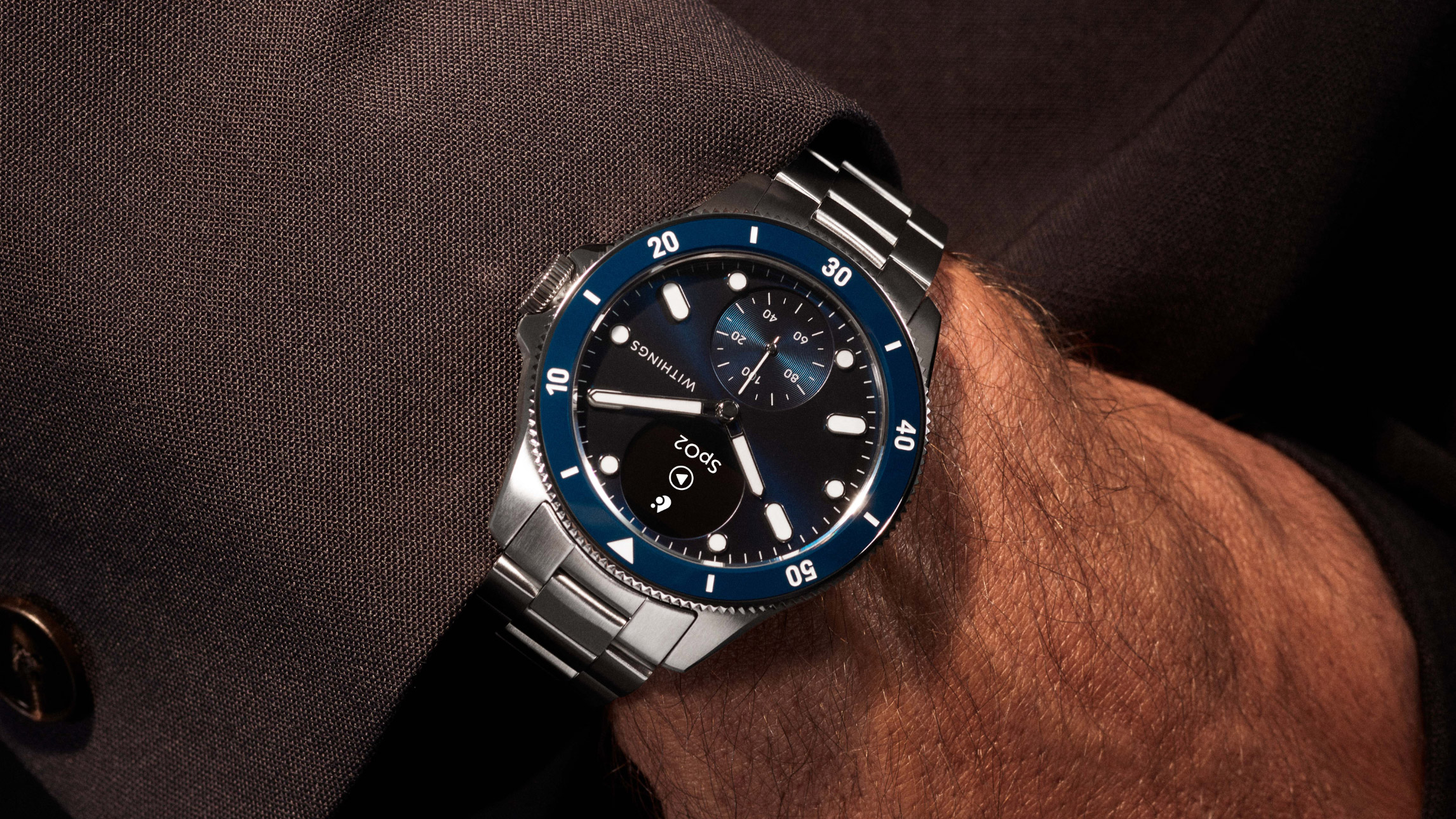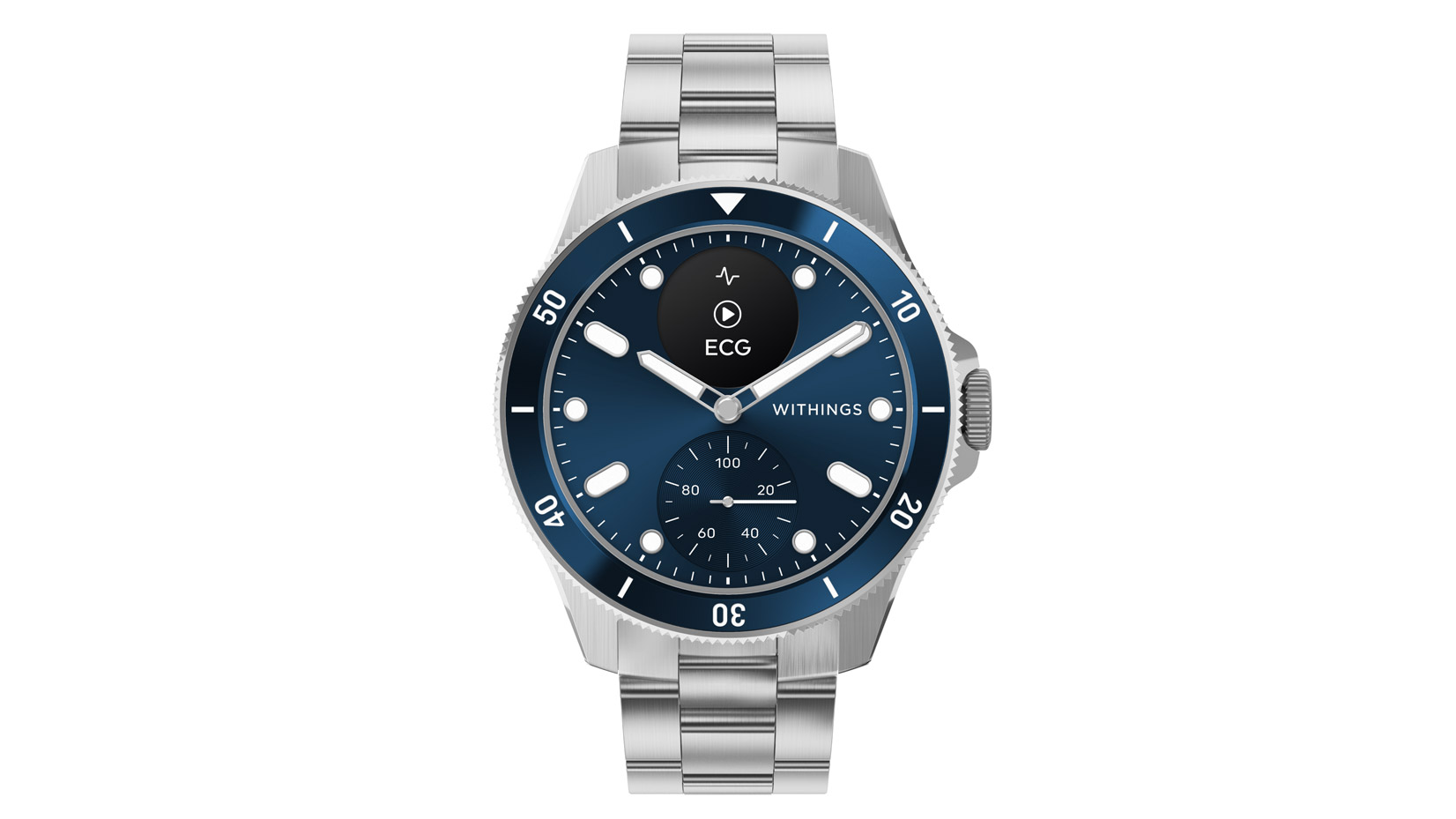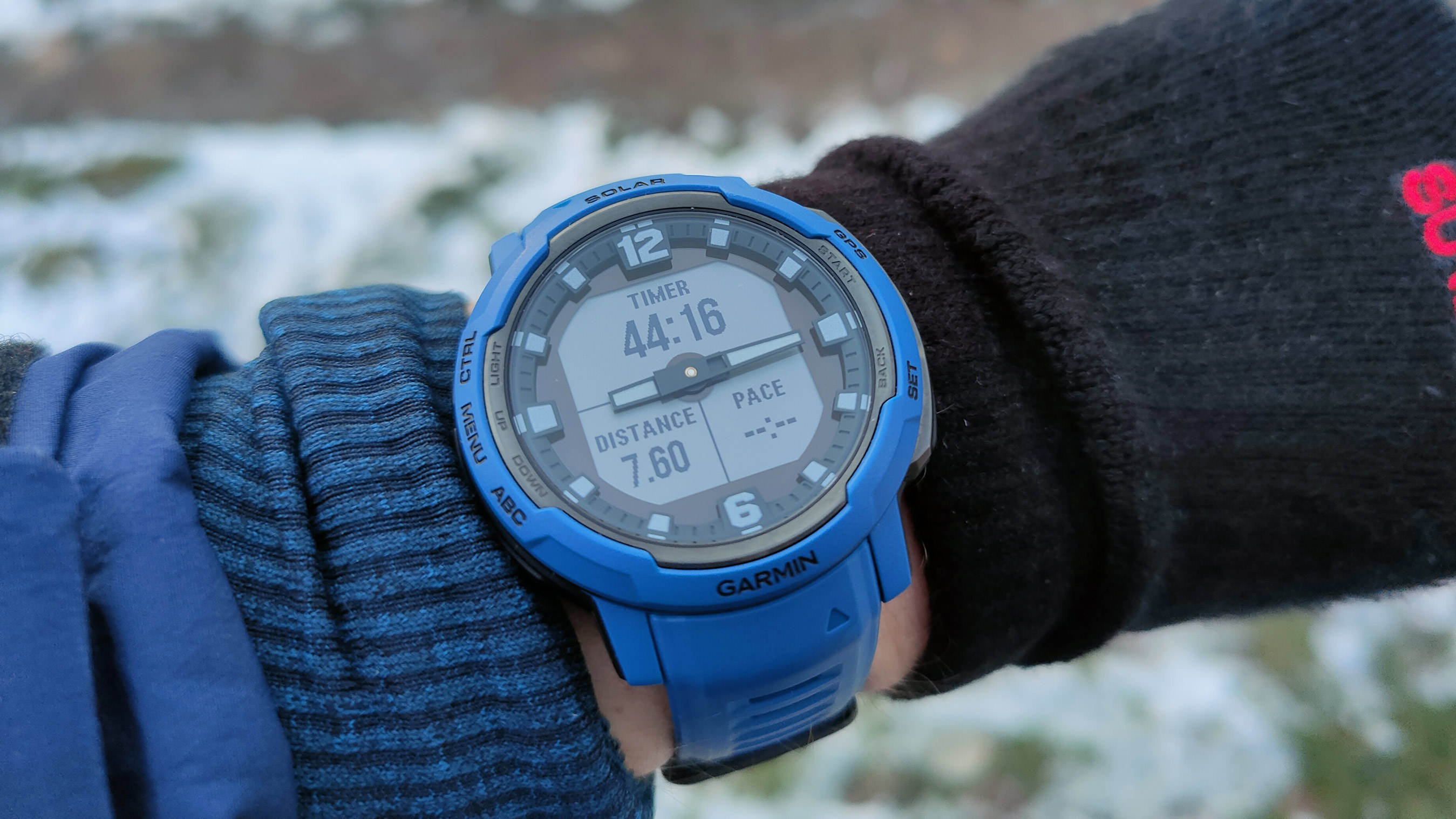Withings' new hybrid smartwatch, the Scanwatch Nova, might knock my favorite Garmin hybrid off my wrist
The Withings Scanwatch Nova looks like a sleek, stylish hybrid watch

Sign up for breaking news, reviews, opinion, top tech deals, and more.
You are now subscribed
Your newsletter sign-up was successful
Withings has unveiled the Withings Scanwatch Nova, the latest entry in its series of hybrid smartwatches with an emphasis on heart health. This iteration uses the heart health and smart-tracking capabilities of its recently-released Scanwatch 2, with a case, bezel, face and strap that are more akin to a premium dive watch.
The Scanwatch Nova’s main point of difference from the Scanwatch 2 is the materials used in its construction: it’s still an analog watch, with physical hands and a small OLED screen within the watch’s face, but it’s now got a ceramic and stainless steel rotating bezel, along with Luminova hollow watch hands and thick raised indices that glow in the dark. Its case and strap are also made of stainless steel, and the screen and face of the watch are protected by anti-reflection sapphire glass.
The overall feel is that of a premium dive watch with a metal strap (or an optional workout-friendly alternative strap) that, at first glance, doesn’t look like one of the best smartwatches around, but it’s packing all of the Scanwatch 2’s smarts including an electrocardiogram (ECG) heart-scanning functionality. Most smartwatches above a certain price range come packing ECGs these days (the best cheap smartwatches don't tend to have the feature), but few of them are approved by the US Food & Drug Administration, and the Scanwatch range is one of the few given medical-grade clearance.

The watch has a massive 30-day battery life, and is said to “track advanced cardiovascular vitals including, heart rate, heart rate variability… It is also able to measure SpO2, breathing disturbances and track sleep patterns”, providing a Sleep Quality score similar to those from the best Fitbit or best Garmin watch.
Withings’ TempTech24/7 temperature sensor looks at the differences between ambient and skin temperature during sleep and during exercise to gain a better understanding of your health; this can indicate the onset of illness. Again, none of these features are particularly new, but Withings, like the Oura Ring, places wellness and health above fitness or smartwatch functionalities.
The Withings Scanwatch Nova is available now in the US, UK and Australia priced at $599.95 / £549.95 / AU$$799.99.
Analysis: hybrid watches are here to stay

Way back in January, I reviewed the Garmin Instinct Crossover and loved it. I’m a real G-Shock person, and it completely scratched that itch for a “smart, but not too smart, but still stylish” analog watch. It had real, physical hands, bags of running metrics, advanced GPS credentials, sleep tracking and a very long battery life – the last two of which features it shares with the Scanwatch Nova.
Sign up for breaking news, reviews, opinion, top tech deals, and more.
Now I can get a metal dive watch for £550 with real analog hands (sorry, Huawei Watch GT 4, but that’s what you were missing) and plenty of great smart capabilities? Sign me up. It may not be a running watch per se – it lacks GPS – but with an accurate heart rate monitor, it’ll certainly do for a quick morning workout or a swim (it’s rated at 10ATM).
I love the look of the watch based on the images we’ve seen so far, and it’s a smartwatch that wouldn’t look out of place when worn with, for example, a proper two-piece suit, in the way one of the best Apple Watches or the Instinct Crossover might. As much as I love it, it is a bulbous, ungainly thing, more suited for a trail run than a wedding. In much the same way as you might not go to prom in a dirt-covered pickup truck, I’d rather wear a metal dive watch to a formal event than the Instinct Crossover.
Still, whatever their setting, I love smartwatches with analog hands, and I’m glad hybrid smartwatches continue to carve out their own niche in the genre. I'm looking forward to reviewing the Scanwatch Nova.
You might also like

Matt is TechRadar's expert on all things fitness, wellness and wearable tech.
A former staffer at Men's Health, he holds a Master's Degree in journalism from Cardiff and has written for brands like Runner's World, Women's Health, Men's Fitness, LiveScience and Fit&Well on everything fitness tech, exercise, nutrition and mental wellbeing.
Matt's a keen runner, ex-kickboxer, not averse to the odd yoga flow, and insists everyone should stretch every morning. When he’s not training or writing about health and fitness, he can be found reading doorstop-thick fantasy books with lots of fictional maps in them.